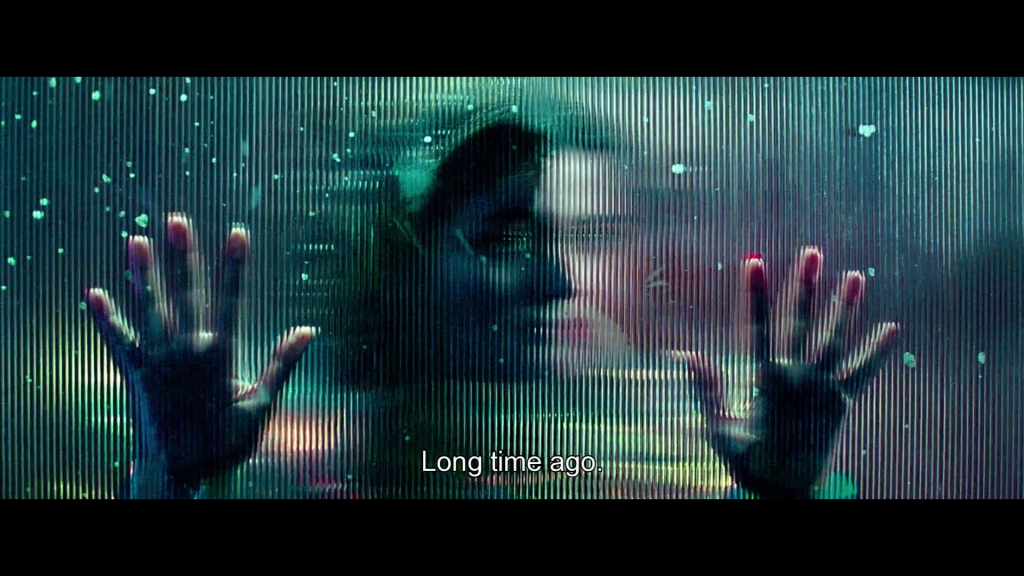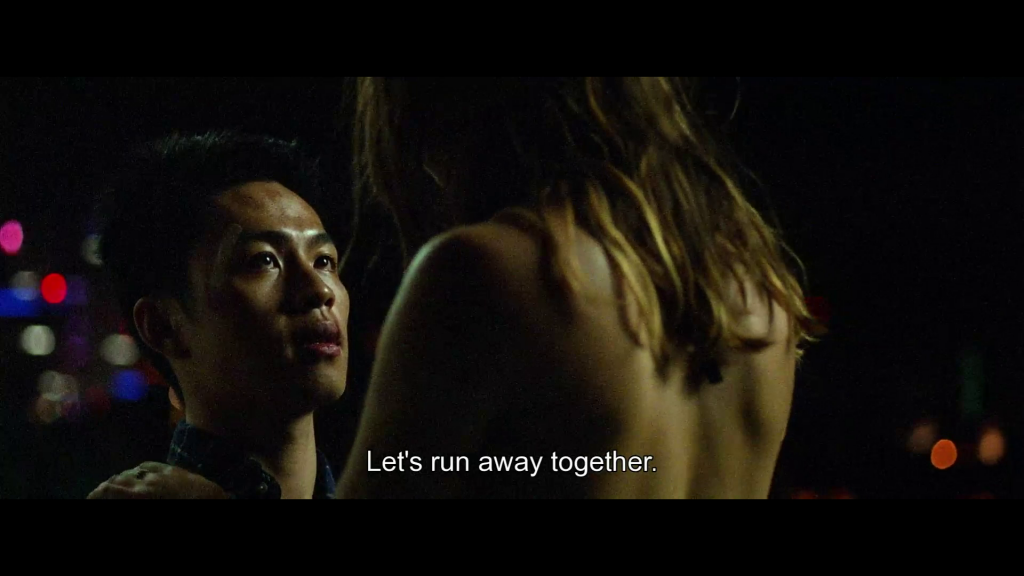A tower block looms into view and, upbeat Chinese karaoke soundtrack notwithstanding, the camera’s persistent gaze, wrenched up to frame the sky and the very top of the building, tells us something’s seriously wrong. Ten seconds later and the bloodied face of a suicide victim fills the screen. It’s a calling-card beginning to this vibrant but bleak time-shifting thriller.
Zhang Dong Ling is not a happy man. He shuffles through the streets of future Taipei as one at odds with the city and oddly untouched by the world of glowing technology and dazzling debauchery that surrounds him. A rival lover touches up his wife in a nostalgia club, but Zhang’s aggressive intervention has only anger, no soul. He walks past gyrating women in the red light district; he looks on, disconnected. Anyway Zhang has bigger things on his mind tonight: a deadly personal vendetta promises to bring some sense of closure to a painful narrative we will see played out in reverse.

Beginning from the story’s end, Cities of Last Things works its way backwards in three main chapters: Zhang, the regret-filled middle-aged man of the future, Zhang, the young rookie cop with something to prove (our time, or thereabouts), and Zhang the teenage boy in the past. The illusion is well handled with excellent casting and strong performances, as well as a screenplay that makes good use of motifs without overplaying them.
The city of Taipei is front and centre in this film: from a confrontation in an outdoor noodle bar to a chase through moped-lined avenues, from a house party of weed-smoking expats to the local characters, this is not a generic Asia-inflected city à la Blade Runner but a real capital rooted in time and space. It grounds the film, lending consistency between the different timeframes and a sense of believability about the future Taipei, aided too by the beautiful cinematography of Jean-Louis Vialard.
The reverse storytelling is akin to a murder mystery, but the question here is not so much why but how things went so wrong. This to me is less interesting than a classic detective story, and it’s where the film loses out to something like the time-bending Memento, with its genuine puzzle and satisfying solution.

For me the most compelling section in Cities of Last Things is the first forty minutes in which we get to know this older Zhang – bitter, regretful, bemused, but still capable of love; a beautifully judged scene with his daughter doing more than anything else to establish empathy. In the second and third acts the dramatic interest begins to dissipate a little, despite the action scenes and revelations.
Touching a number of genres – crime, sci-fi, murder mystery, romance – and by turns sad, sexy, funny and dark, Cities of Last Things is ultimately a modern fable of pessimism, of being the victim of circumstance, of illusory happiness achievable now only in drug-enhanced artifice. Let’s run away together, it says…if only we could.
Leave a Reply